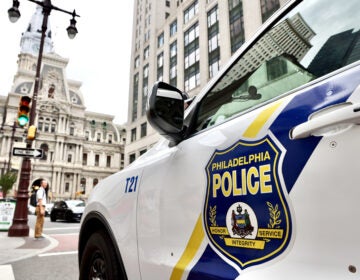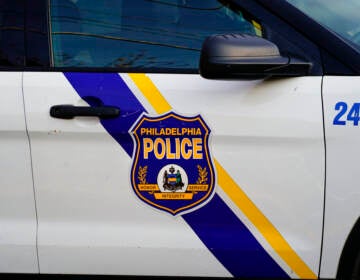Philadelphia gun violence victims find support through residents and nonprofits
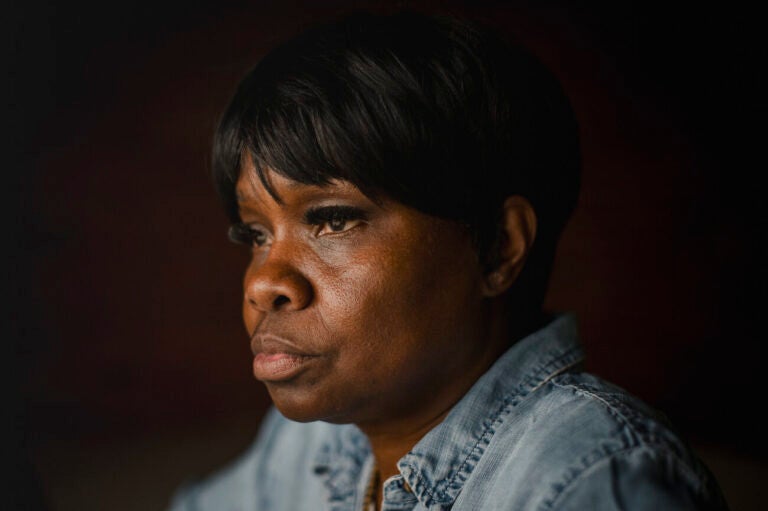
Tanya Warden, 55, sits for a portrait at her workplace in Philadelphia, PA, on Tuesday March 26 2024. Warden’s son, Tyron Alexander, was shot multiple times and died in October 2020. (Hannah Yoon for NPR)
Tanya Horton was at work when she got a vague phone call that would turn that day into the worst of her life.
Her son, she was told, had been in an accident.
“I’m thinking, ‘OK, he was in a little small accident, he’s gonna be fine,’ you know,” Horton said.
But when she arrived at the hospital to find several of her family members devastated and hysterical, she knew something was terribly wrong.
Horton’s son, Tyron Alexander, had been shot several times and killed during a robbery while visiting friends in his old neighborhood, just a block away from his former home.
“When they first told me it didn’t register,” Horton said. “I proceeded to go over to the emergency room door and a police officer stopped me and told me I couldn’t go inside. That’s when it hit me that my son was gone.”
Tyron was one of 499 people killed in 2020 in Philadelphia, most with a firearm. His death was one of more than 45,000 gun-related deaths registered in the U.S. that year. A wave of gun violence that would continue for several years was sweeping across the country.
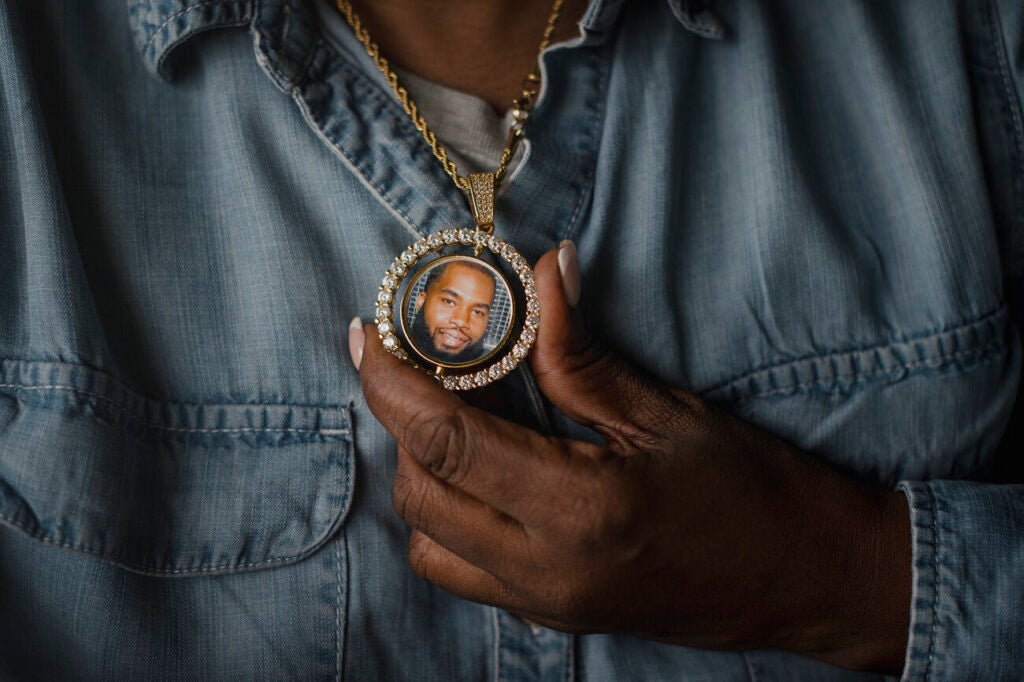
A year later, Philadelphia would set an all-time record of 562 homicides. Between 2020 and 2023, more than 2,000 people were killed in Philadelphia. The overwhelming majority of those deaths were gun-related.
For many Philadelphians, gun violence has become a part of life. It happens on their streets, they hear about it on the news and for those like Horton, it causes immediate, irreparable harm. In response, some city residents have banded together to form a cottage industry of nonprofits and organizations whose goal is to reduce gun violence and serve gun violence victims, survivors and their families.
It’s here that Horton has found community in a group of women who’ve been through similar experiences, Mothers in Charge, a group of women organized to reduce gun violence in Philadelphia. She’s also found comfort and purpose in her immediate family.
“I have my other two children and my grandchildren that definitely depend on me, especially his [Tyron] two children,” Horton said. “So when I see them and give them a hug, it’s like I’m still hugging my son.”
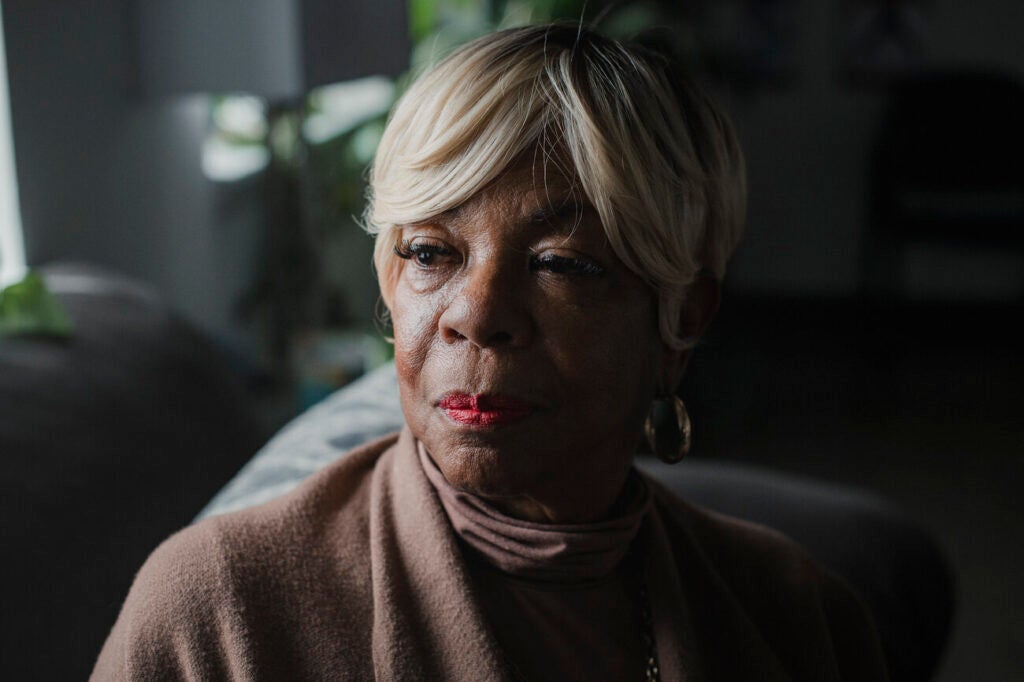
Hannah Yoon for NPR
Helping families like Horton’s is the mission of Mothers in Charge.
The organization was founded by Dorothy Johnson-Speight after her 24-year-old son was shot to death in a dispute over a parking space. She has become a leading voice in Philadelphia’s gun violence conversation.
She says that elected officials could do more, but that the problems that lead to gun violence in America are too big to simply rely on the government.
“I wish there was just one thing that I could say, ‘OK, if we did this, the violence would end,'” Johnson-Speight said. “It’s so many things that contribute to the violence that we see.”
Philadelphia Police Commissioner Kevin Bethel, who has worked in the department for about three decades, said some of the city’s gun violence woes are specific to the city, while others are more universal.
“The reality is we are one of the poorest cities in the nation, urban cities,” Bethel said. “And those dynamics, when you had COVID come into play where everythings shuts down, and the whole system shuts down, then we shouldn’t be surprised because we knew those efforts, keeping kids in school, making sure you’re making connections and having a trusted adult in your life. All those elements kind of start to peel away.”
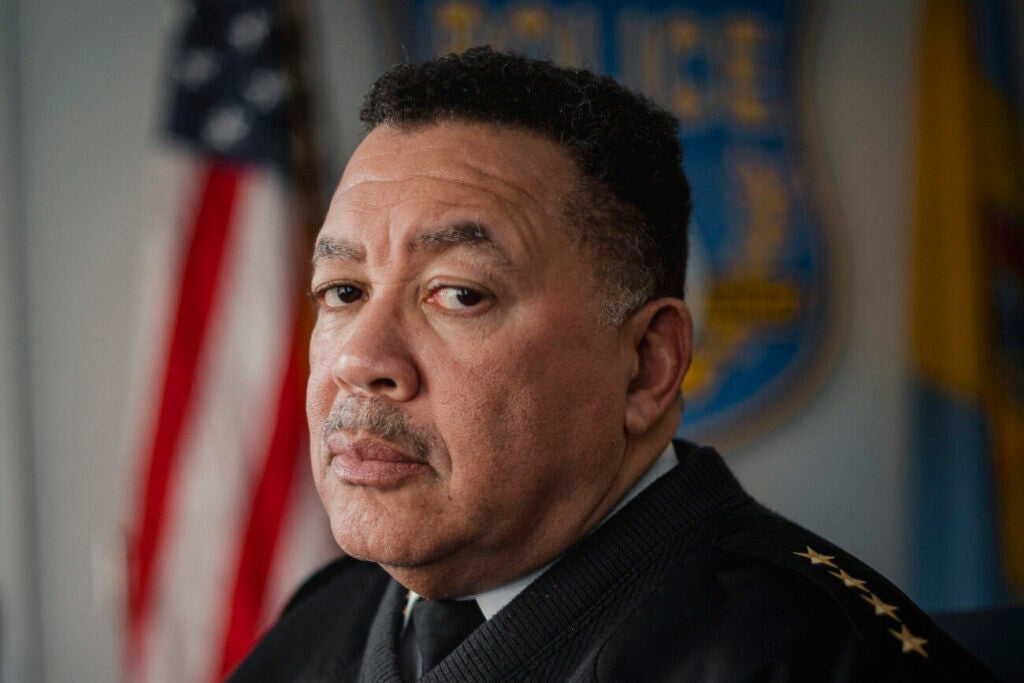
Of the 373 people fatally shot last year in Philadelphia, nearly half of them were 30 years old or younger, and 17 victims were younger than 18 years old, according to a city dashboard that tracks gun violence incidents.
Bethel said he believes it wasn’t just the pandemic’s disruptions that caused gun violence to spike. Getting a firearm is easier now thanks to ghost guns and kits used to build guns, Bethel said, adding that some people bought guns with government money meant to cushion the financial blows of the pandemic.
The Philadelphia Police Department has confiscated an average of 6,000 firearms every year over the past three years, Bethel said.
Beyond that, Pennsylvania has few requirements to purchase and own a gun. Residents must: be 21 years old, undergo a background check and have a Pennsylvania License to Carry Firearms. Residents don’t have to prove they know how to use a firearm.
By some measures, Bethel said, things are moving in the right direction. Homicides last year were down 20% from the previous year, something Bethel credits to the city’s significant investments in conflict prevention and resolution along with the ongoing work of community groups.
“We have partnerships with the community and through that process start to bring in non-sworn, professional staff to help build those bridges,” Bethel reassured.
But the city faces headwinds: like many other police departments around the country, Philadelphia is struggling to recruit and retain police officers, another reason Bethel believes community engagement is so critical.
A collection of nonprofits and community organizations are trying to meet that need by taking care of survivors and working to prevent more gun violence.
Ricky Duncan, executive director of New Options, More Opportunities, leads one of them.
“I’m an actionist not an activist,” Duncan said. “Activists do a lot of talking, we try to do a lot of working.”
NOMO, as the nonprofit is known, does a little of everything: job training, mental health counseling, mentorship, violence prevention and intervention work.
For Duncan, who was once in prison for drug and gun possession convictions, the work is personal.
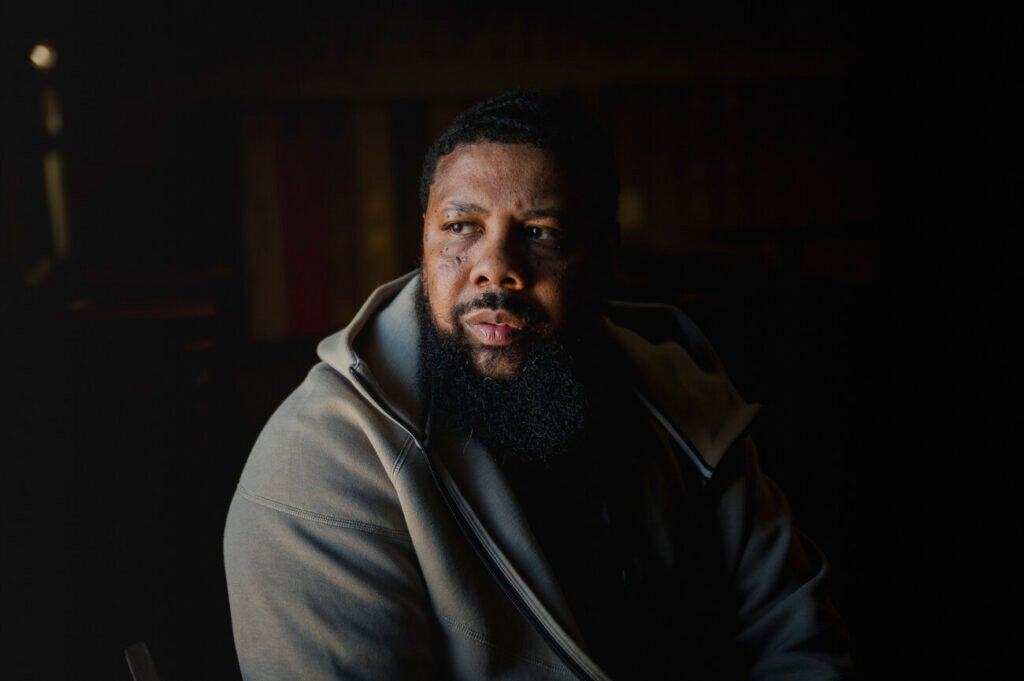
(Hannah Yoon for NPR)
“I wanted to repent for the people that I hurt, whether it was physical, mentally, emotionally, because, you know, I took a lot of losses when I was in prison,” Duncan said. “I lost my grandmother to cancer. That [she] put her all into making sure that I wouldn’t land into the spot that I landed into.”
About 20 minutes north of downtown Philadelphia, in Germantown, a historic area that has become the scene of several shootings, is another gun violence prevention organization, EMIR, short for Every Murder Is Real. The office is filled with comfortable chairs, colorful drawings and inspirational messages.
Chantay Love is the brains behind EMIR’s name, mission and purposefully welcoming office.
“I was researching what happens after a war, what happens to a country after a war, the devastation, the despair, the hopelessness, the poverty, the pain, and it resembled my neighborhood,” Love said. “It resembled Germantown.”
EMIR is also named after Chantay Love’s brother, who was shot to death in March 1997.
Love’s organization specifically supports people whose family members are victims of gun violence. EMIR offers counseling to surviving family and community members and guidance for other things like funeral expenses or how to speak to lawmakers.
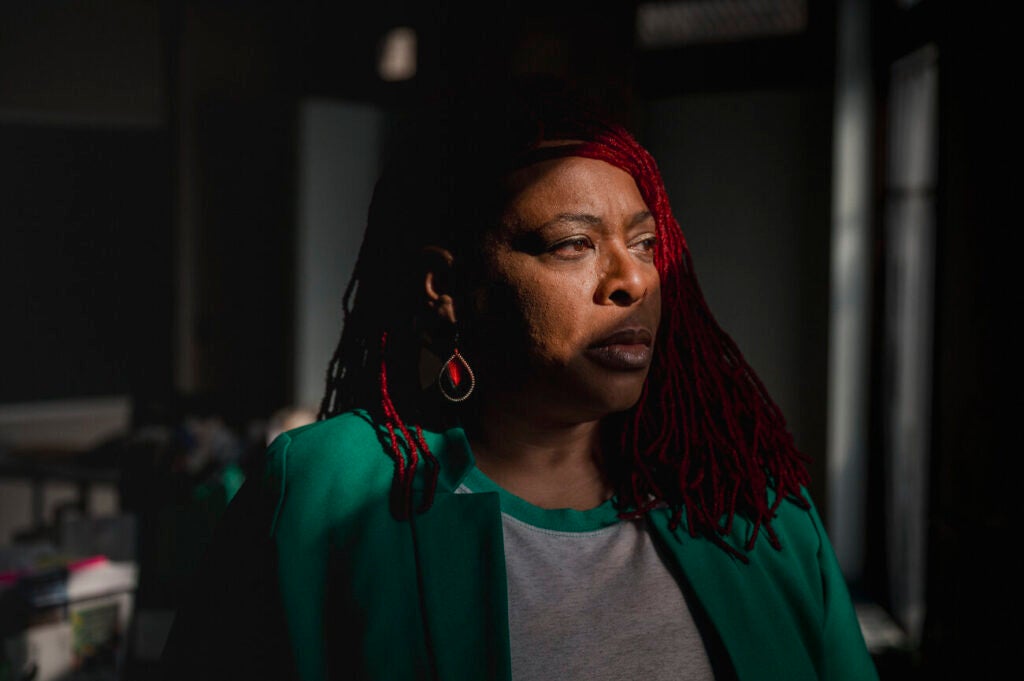
“Someone gets harmed. Someone is bleeding. You don’t just put a Band-Aid on it. You fix the root cause of why are they bleeding, and you invest in that.” Love said.
EMIR, NOMO and Mothers in Charge — most of which are run with a combination of grants, fundraising and volunteers — are trying to invest in solutions. But grassroots organizations cannot solve gun violence alone.
The nonprofit Anti-Violence Partnership of Philadelphia is trying to bridge the gap.
AVP is contracted by the District Attorney’s office to provide service to victims. Natasha Daniela De Lima McGlynn, the executive director of AVP, says AVP brings federal, state and local governments together after mass violence to set up community resilience centers.
“There’s a lot of violence and a lot of grief,” McGlynn said. “More often than not, you’ll see a lot of folks in this space. They’ll form a nonprofit in the aftermath of losing their loved one. What we see is a sense of losing hope because their experience is post victimization, whether it is losing a loved one or them themselves experiencing victimization. They feel invisible.”
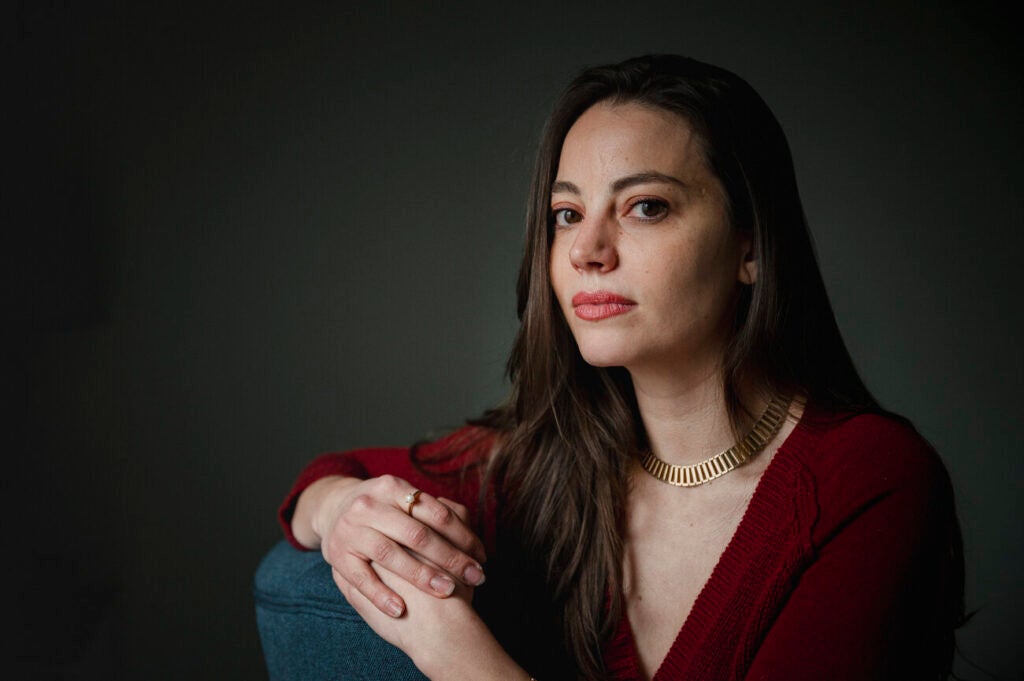
(Hannah Yoon for NPR)
In recent weeks, state and federal government officials have proposed efforts aimed at reducing gun violence, though partisan divides in Pennsylvania could stall any feasible policy changes.
The Democrat-controlled Pennsylvania state House considered bills this year that would ban the sale of semi automatic and automatic weapons and ghost guns, but both appear unlikely to be taken up in the Republican-held state Senate.
For Pennsylvania’s Lt. Gov., Austin Davis, that’s not good enough.
“I think the question is how many people are going to have to die until we get Republican legislators to pass common sense gun reform legislation,” Davis said.
He says universal background checks, red flag laws, and lost-and-stolen laws are pieces of legislation that could keep communities safer.
The issue of gun control is running into the same political complications as similarly controversial issues despite countless polls that show the vast majority of Americans — including gun owners — want stricter gun laws.
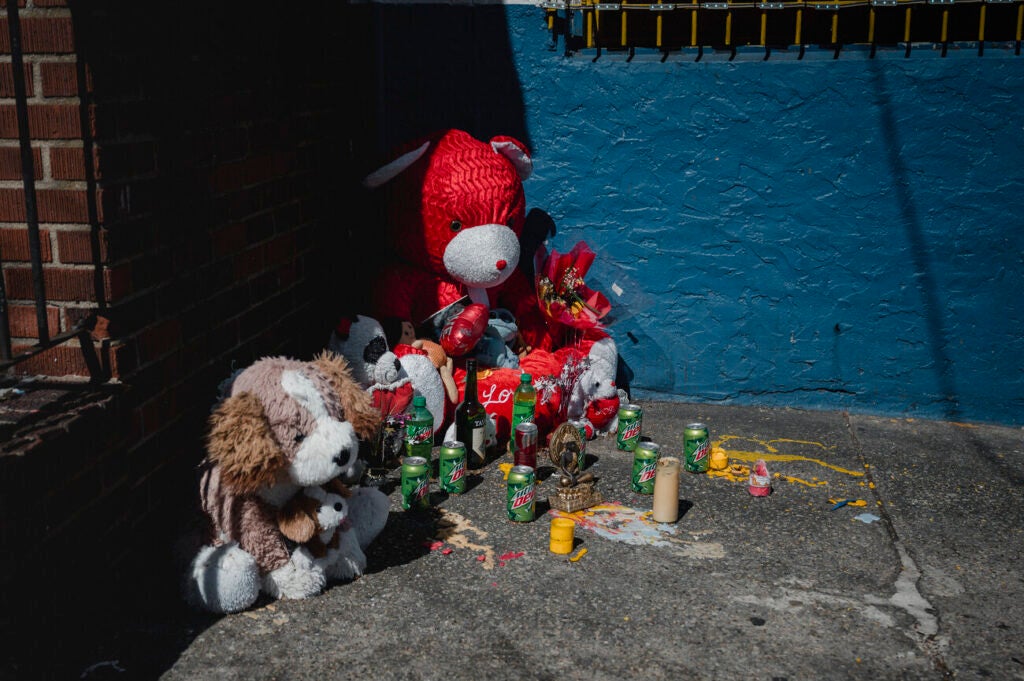
(Hannah Yoon for NPR)
“I don’t think it’s people thinking that this issue can’t be cured at the ballot box,” Davis said. “I think it’s inherently baked into our political process that some elected leaders choose to ignore the problems, while others are choosing to do something about it.”
Joe Pittman, Pennsylvania’s Senate Republican majority leader, declined to make himself or any other Republican senators available for interviews with NPR, but he provided a statement that reads, “We remain steadfast in our ongoing support of law enforcement, leadership of school safety initiatives, and examination of ways to provide greater mental and behavioral health support to help protect our communities.” He also added that Pennsylvania currently has robust gun laws in place.
Davis, with the support of Democratic Gov. Josh Shapiro, plans to create an office of gun violence prevention — modeled after the one established by the White House in September 2023.
And last week the Justice Department and the Biden administration announced a new measure to close the “gun show loophole,” a push that would require anyone selling a gun to run a background check on their customer.
Some Philadelphians have seen too much, though. Without being able to rely on gridlocked politics to make them feel safer, some are taking their futures into their own hands.
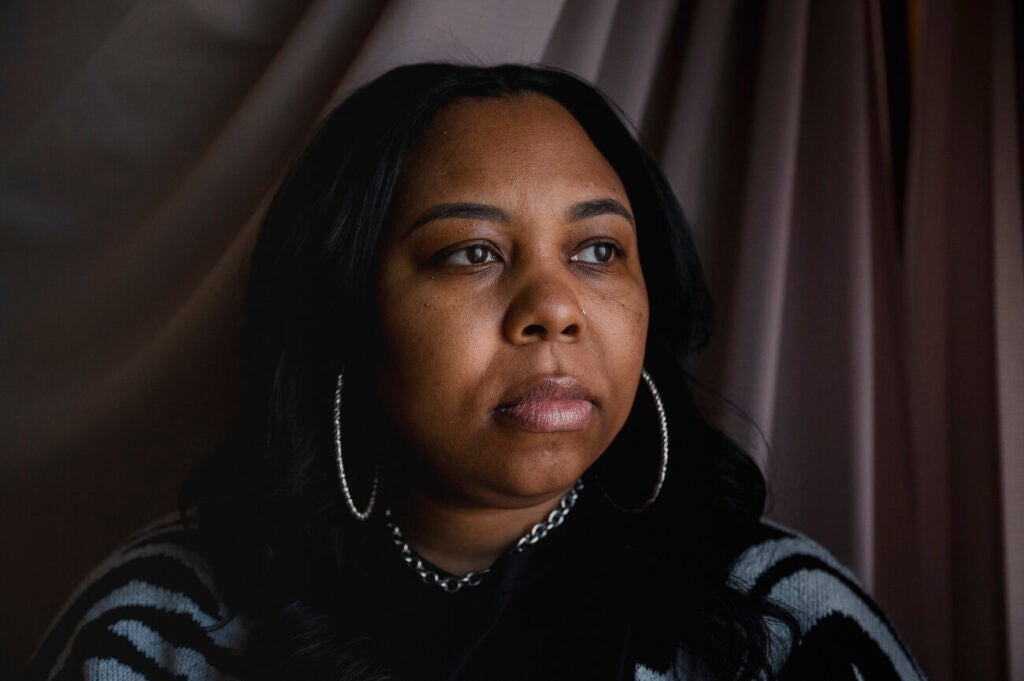
(Hannah Yoon for NPR)
Rashana Greer lost enough people in her life and decided to walk away from her hometown.
“We’ve lost a cousin a few years back in South Philadelphia to gun violence,” Greer said. “Just violence, period, has impacted our family. My grandfather was murdered. My father was murdered. And not all at the hands of gun violence, but just violence, period.”
On top of that, a few years ago, Greer’s neighbor was murdered in a drive-by shooting, and in the crossfire more than 22 gunshots rained into her house and car.
“There’s still bullet holes in the walls and the doors, in the front of the house,” Greer said.
Greer did the only thing she could think to do, she moved. She did it to ease her mind and protect her children. But her worry remains.
Sitting in her mother’s kitchen in North Philadelphia, there was one more thing on her mind.
“I’m working on the rest of my family because it’s not good at all.” Greer said. “And I tell her [Greer’s mother] all the time, we’re working on it. That’s the plan.”
9(MDAzMzI1ODY3MDEyMzkzOTE3NjIxNDg3MQ001))


